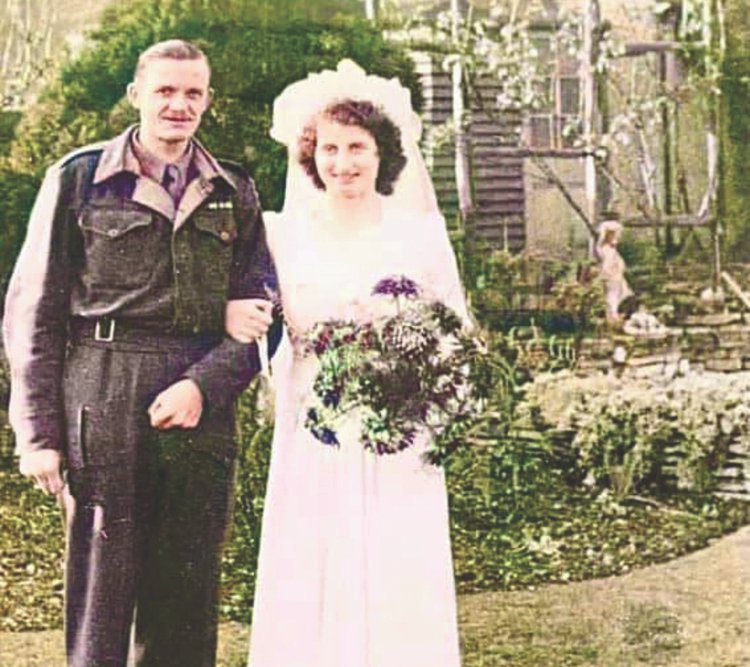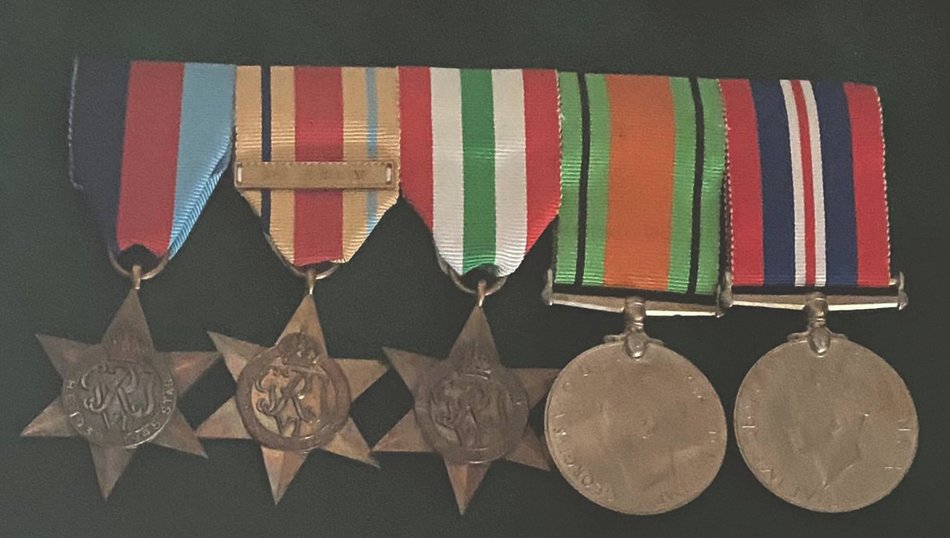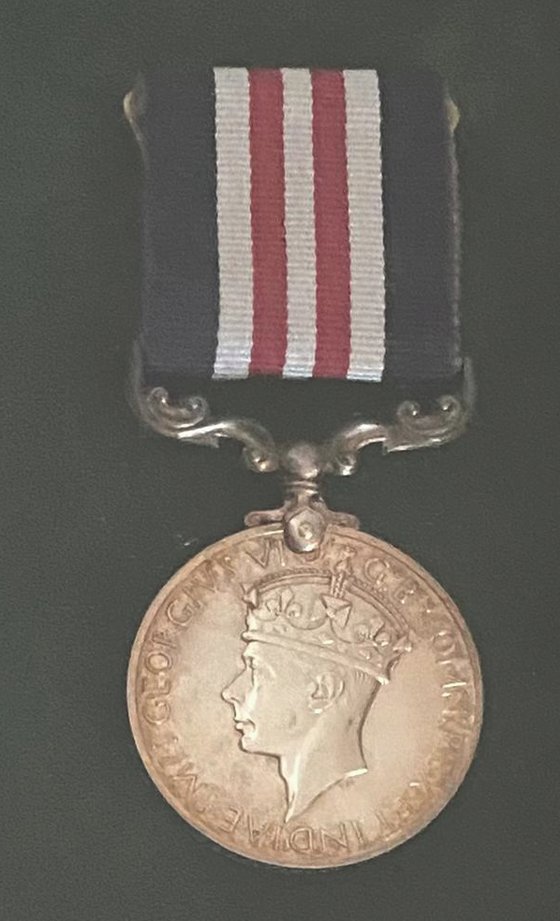‘Cheerful Percy, an inspiration to all’
WILL BROOK’s grandad Percy Brook hardly ever talked about his wartime experiences. But the Peckham lad who joined up aged 21 went on to be awarded a medal for bravery. This is his story
Percy Bruce Brook, my grandad, was a 21 year-old Peckham lad working in a toffee factory when the Second World War broke out.
The closest thing to a weapon he took to war was his saxophone.
But that didn’t stop him winning a medal for bravery.
A keen saxophonist and clarinettist, he joined the East Surrey Regiment – which became the Queen’s Royal Surrey Regiment in 1959 – as a bandsman and medical orderly.
He was stationed in England until 1942, when his call to duty saw him posted with the regiment to the front line in Algiers, North Africa.

As a medical orderly, his role was to carry stretchers onto the battlefield and evacuate wounded soldiers, often including the enemy.
He served in the African and Italian campaigns, and in the latter, was part of the famous Battle of Monte Cassino in May, 1944, a brutal conflict which saw an estimated 75,000 casualties.
But it was months later at an Italian village called Santa Aquilina in September, 1944, that he was awarded the Military Medal for bravery – one of 15,225 soldiers to receive the accolade over the course of the war which claimed the lives of an estimated 75million people.
The village is near the east coast, on the outskirts of the city Rimini – itself once an important port in the Roman Empire and then the home of Leonardo Da Vinci and the birthplace in 1920 of film director Frederico Fellini.
But the area became a gruesome theatre of war, with the Battle of Rimini waging from September 13 to 21 1944, a conflict which saw allied forces fire 1,470,000 rounds of ammunition on the Germans’ ‘Gothic Line’ of defence.

More than 22,000 soldiers on either side were wounded or killed in action.
In a report, his general wrote: “At 0015 hours this soldier went out with two ambulance jeeps in answer to a call.
He collected six wounded Tank Regiment soldiers under heavy fire and evacuated them safely by 0345 hours.
“At 0600 hours Private Brook was called again with the jeeps, and, while in the forward area came under heavy mortar fire, which killed one jeep driver and severely shook the other.
“Private Brook is unable to drive, but by his conduct, exhortation and complete disregard for his own safety, he rallied the remaining jeep driver and medical orderly, and successfully brought back the two jeeps.
“On arrival at the Regimental Aid Post the jeep driver and other medical orderly collapsed. Ten minutes later, Private Brook volunteered to go out with the ambulance carrier and evacuated more wounded under heavy fire.
“Throughout September 20 and 21, 20 and 21 Brook never failed to volunteer when ambulances were called for and evacuated 25 wounded (including enemy) under heavy fire.
“The behaviour and cheerful bearing of this soldier were an inspiration to us all.”

A report of his actions was published in the South London Press.
Just weeks after this, in December 1944, Percy was wounded by shrapnel from a mortar shell.
He returned to England, and married my grandmother, Winnie, who he had proposed to three days after meeting her.
Winnie worked as a nurse throughout the war at Dulwich Hospital,, East Dulwich Grove – now the site of a health centre and The Charter School, East Dulwich.
Percy left the army after the war and used his discharge payment to put down a deposit for a house in Southampton.
His medals and signed letter of congratulations from the King were kept in the wooden box they were posted to him in, out of sight in his bedside drawer, for decades.
He was a quiet and gentle man, who spoke little about his time during the war.
This is hardly surprising, as one of his jobs during the war was to bury the dead.
In 1980, Percy’s wife contacted the Southern Daily Echo without his knowledge, and convinced him to speak about his experiences.
He told the newspaper: “At times I was burying friends, and some others so badly injured you didn’t know who they were.
“Of course I was scared. The Germans never shot at us deliberately and there was plenty of cover, but that didn’t stop them lobbing shells over. It got a little hairy at times.
“But I had to put my feelings to one side. Just get out there, pick the man up, and bring him back to the doctor.
“You worked until you had enough and then someone else took over. But I was happy about the role I was playing. I never thought I could make a bigger contribution elsewhere.”
Percy died in 2009 at the age of 91.
My last memory of him is a fond one.
He is sitting in a large chair in our conservatory, smoking his pipe, and smiling.
Main Pic: Percy with sons Clive Brook, left, and Peter Brook
